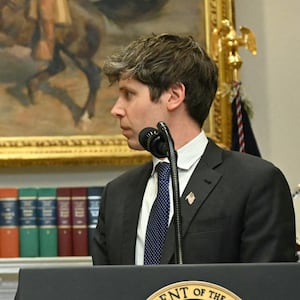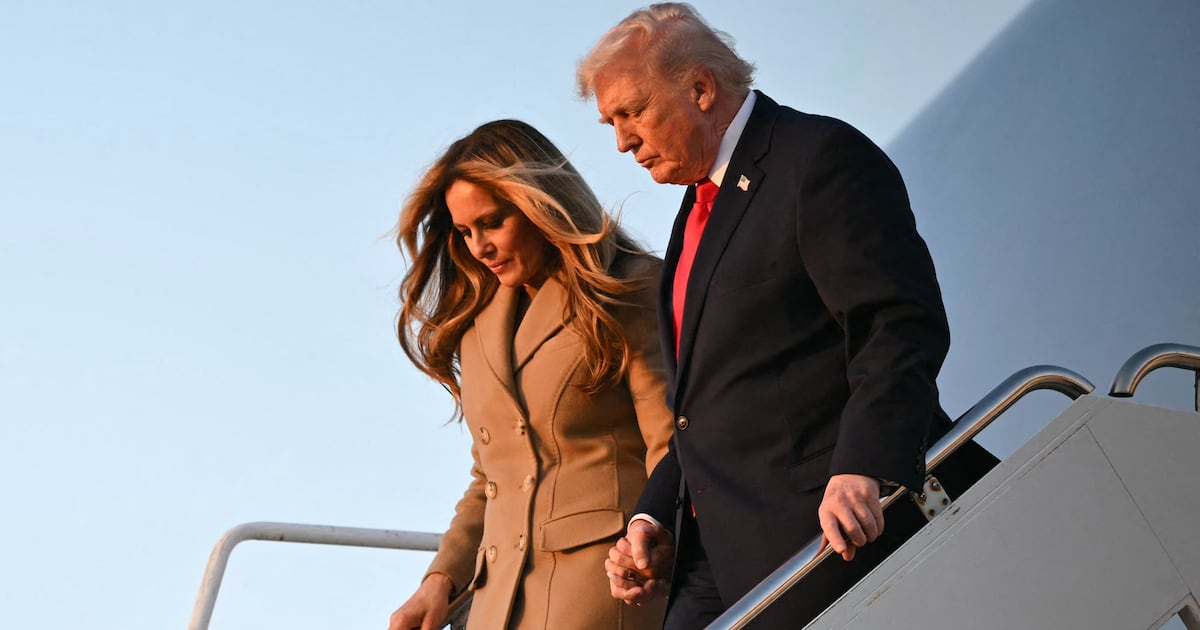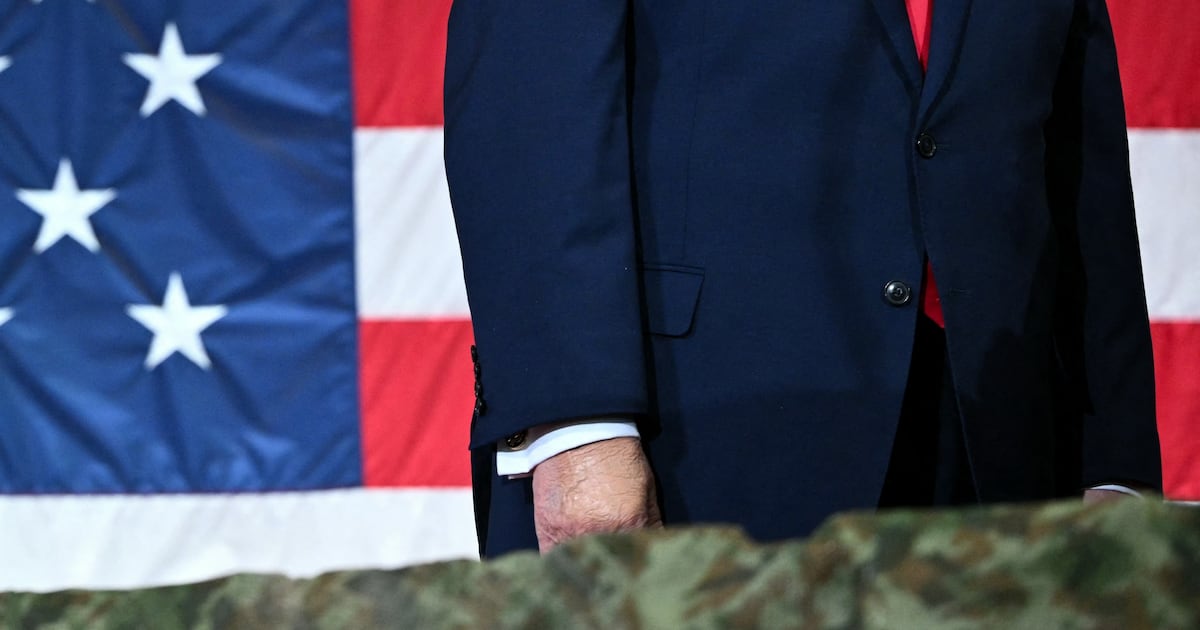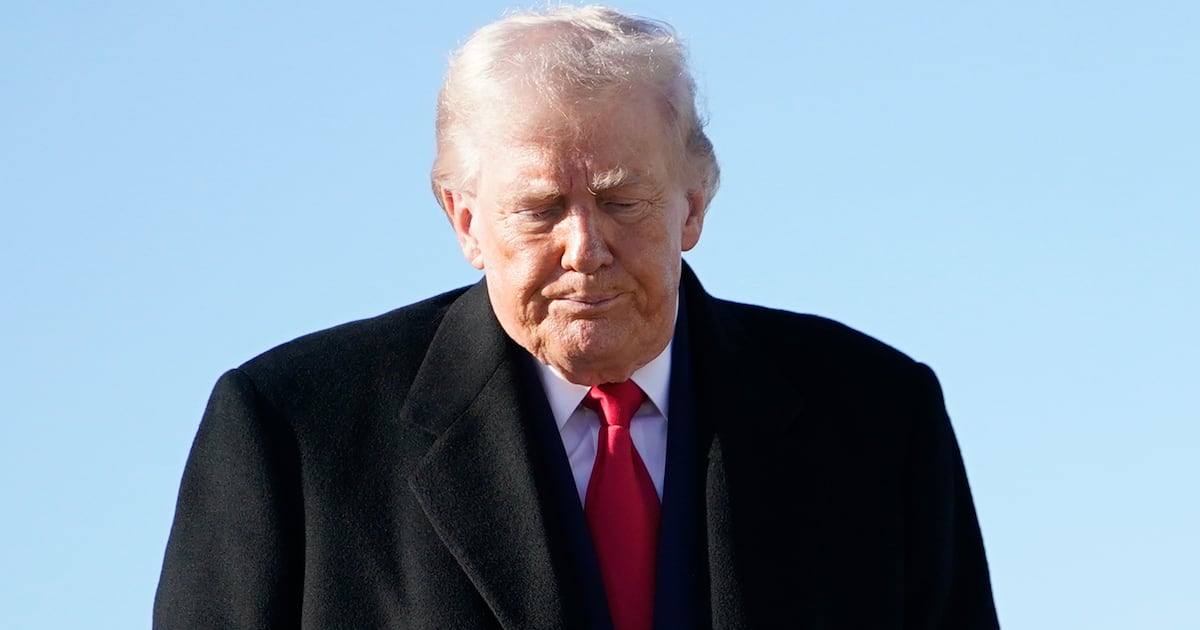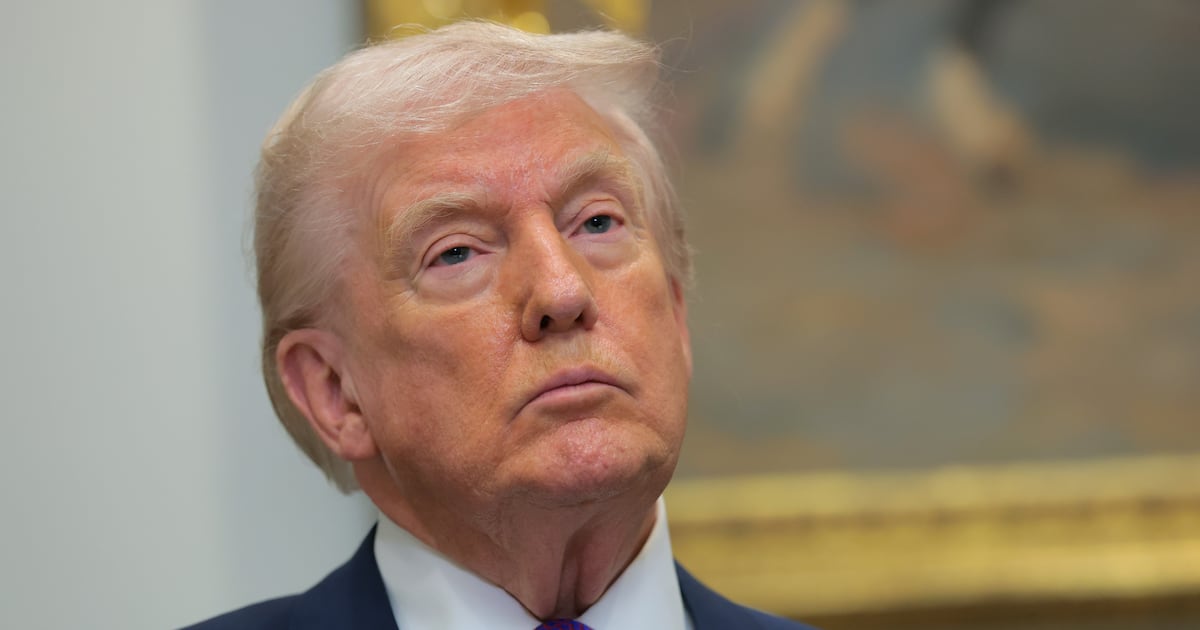In their heedless quest to chainsaw the federal budget, the world’s most powerful person and the richest man on Earth managed to cut a program that had cost nothing at all—while developing more than 60 drugs for children with cancer and rare, life-threatening diseases.
“This program has not cost taxpayers a dime,” notes Nancy Goodman, who conceived and championed the Give Kids A Chance Act, which passed Congress in 2011 and now needs renewal.
Goodman lost her 10-year-old son, Jacob, to medulloblastoma in 2009.

“He was this normal, healthy kid till he was 8,” she told the Daily Beast. “He thought he was going to be like an NBA player. Or he thought he would be a rock and roll star. Those were his life plans.”
She went on, “And then one day he started throwing up and having headaches in the morning. And then six weeks later, he had surgery for brain cancer. He was profoundly neurologically impaired for two years.”
The only chemotherapy was a 40-year old treatment that offered no real hope for a cure. But it was that or nothing,
“And then he died,” Goodman said.
The very next day, Goodman, a lawyer, founded Kids v Cancer, an advocacy group with a singular focus.
“I feel like my job on this planet until I die is to create incentives for companies to develop drugs for kids who are seriously ill,” she said.
She drafted and advocated for a series of bills.
“You got to write it, then you got to talk to the FDA and stakeholders, which basically means bio and pharma industry trade associations, and try to get them in agreement, or at least neutral,” she said.
The next step was the same as it would be for any legislation.
“You find a Republican and Democratic sponsor in the House and in the Senate to introduce it, and then you shepherd it through Congress,” she continued.
Here, she enlisted advocates who were more compelling than most.
“We would do that by getting these amazing kids who have cancer, who are survivors and who are their siblings to go to Capitol Hill and ask members of Congress and their staff why they can’t help kids with cancer.” she said. “It’s actually incredibly effective.”
She noted, “It’s really hard to look a terminally ill kid in the eyes and say, ‘No, I’m not going to help you.’ So that’s what we count on.

She sent the kids to the meetings without adult chaperones.
“So the kids start complaining about the hospital food… that they still have to go to school, even though they’re getting chemo, and that’s not fair… That they had a test and they didn’t do well, and they shouldn’t have to do the test.”
She added: “It’s not like the most rigorous advocacy you’ve ever witnessed in your life, but what could be stronger? The bill gets through.”
The third bill thus marshaled by Kids v Cancer was the Give Kids A Chance Act of 2024, which provides researchers with pediatric priority review vouchers that allow quicker FDA review for any new product.
The year-long measure had been a great success when it needed to be reauthorized in December. The legislation to renew it was then bundled in with numerous health-care provisions as part of a huge Continuing Resolution meant to fund the government from December 2024 to March 2025.
Musk, who has been tasked by President Donald Trump with gutting the federal government, took note that the entire resolution was 1,547 pages. He exulted in Latin on X when it was cut at his insistent urging to a mere 116 pages.
“VOX POPULI! VOX DEI!” (The voice of the people [is] the voice of God!)
Among the 1,431 excised pages were a half-dozen pediatric cancer provisions, including the renewal of the Give Kids a Chance Act.
That did not stop Trump from including a 13-year-old with brain and spine cancer among his featured guests at his address to a joint session of Congress Tuesday night.

Devarjaye “DJ” Daniel and his family had sought refuge in a city shelter when Hurricane Harvey hit Houston in 2017, and the boy decided he wanted to become a cop after a trio of police officers brought them pizza.
Daniel learned of a 7-year-old girl with cancer who shared his dream. Abigail Arias was sworn in as an honorary officer in Freeport, Texas, and became a Facebook sensation before she died in 2019. Daniel followed her lead and was sworn in by one department after another.
“Abigail is always in my heart,” said DJ in 2022. “At first my goal was to be sworn in by 100 law enforcement agencies, but I passed that a while ago… Now I’m just having fun.”
He had been sworn in by 908 law enforcement agencies when President Trump drew attention to him in the visitors’ gallery on Tuesday night. The 909th agency came as Secret Service Director Sean Curran presented him with credentials making him an honorary agent. The boy threw his arms around Curran as Republican members of Congress gave a standing ovation, erupting into whistles and cheers. The Democrats had resolved to remain seated during the speech and even this sight did not get them to their feet.
“Democrats reminded us they are the party of insanity and hate—they could not even clap for a child,” Press Secretary Karoline Leavitt wrote on X following the address.
Afterwards, Democrats reminded everybody who questioned the decision that this was a president who had been joined by Musk in cutting funds for pediatric cancer research and treatment. And the Democrats did not forget that Trump had pardoned those who injured 138 cops on Jan. 6 while assaulting the very building where Trump now honored this brave youngster in a cut-to-size police uniform.
For her part, Goodman said that she would have joined in the standing ovation for Daniel. She knew all too well what he faced with such indomitable spirit—and what still might await him before his fight for life was over.
“To recognize his humanity and his bravery is really a beautiful and honorable thing,” Goodman said. “I think people should have stood for him because DJ faced terrible challenges, and we should recognize him for his hardship and his bravery, and we should have compassion for him.”
She paused.
“That said, if the president is going to help kids with cancer, granting DJ Daniel an honorary Secret Service agent position is not going to do it.”
She suggested Trump could start by releasing and fully restoring the NIH research grants he had frozen, without cutting the provisions for necessary administrative costs.
“And he could stop talking about Medicaid cuts,” she continued. “Half of all kids in the United States are on Medicaid. It’s going to really hurt seriously ill children if we cut Medicaid.”
And, of course, there is the Give Kids A Chance Act, the immediate priority in the work she began in 2009, the day after the death of her son who wanted to be an NBA player and a rock star, but had no real chance for any kind future with a four-decade-old treatment.
“He’d be 26,” she said.


